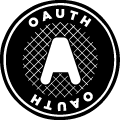 OpenID Connect is a simple identity layer built on top of OAuth 2.0. It enables clients to verify the identity of and to obtain basic profile information about an end-user. It uses RESTful protocols and JSON data structures to provide a low barrier to entry. The design philosophy behind OpenID Connect is “make simple things simple and make complex things possible”.
OpenID Connect is a simple identity layer built on top of OAuth 2.0. It enables clients to verify the identity of and to obtain basic profile information about an end-user. It uses RESTful protocols and JSON data structures to provide a low barrier to entry. The design philosophy behind OpenID Connect is “make simple things simple and make complex things possible”.
OpenID Connect is designed to cover a range of scenarios and use cases including Internet, enterprise, cloud, and mobile, to span security & privacy requirements from non-sensitive information to highly secure, and to span sophistication of claims usage, from basic default claims to specific requested claims to aggregated and distributed claims. It maximizes the simplicity of implementations by reusing existing OAuth 2.0, JWT, and SWD specs and employing a modular structure, allowing deployments to utilize only the pieces they need.
OpenID Connect has a number of key differences from OpenID 2.0. Among them are: support for native client applications, identifiers using e-mail address format, standard UserInfo endpoint for retrieving basic claims about the end-user, being designed to work well on mobile phones, use of JSON/REST rather than XML, support for encryption and higher LoAs, and support for distributed and aggregated claims.
Today marks a milestone in the OpenID Connect specification development: the OpenID Foundation announced that the current set of drafts is being reviewed for approval as Implementer’s Drafts. An Implementer’s Draft is a stable version of a specification intended for implementation and deployment that provides intellectual property protections to implementers of the specification. These drafts are the product of incorporating months of feedback from implementers and reviewers of earlier specification drafts, including feedback resulting from interop testing. Thanks to all of you who contributed to the development of OpenID Connect!

